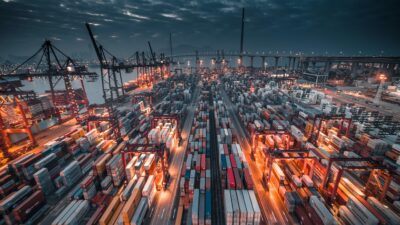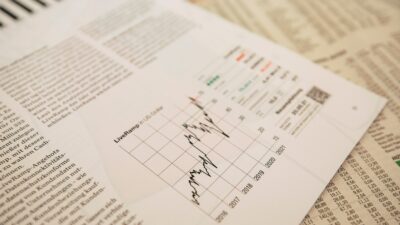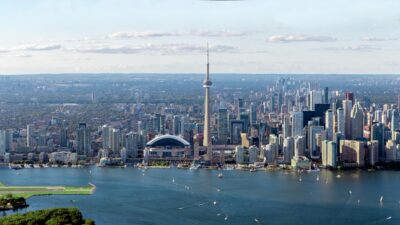Sydney Business Insights and Hans Hendrischke

Demystifying Chinese investment in Australia
There is constant debate about Chinese investment in Australia, whether it’s real estate prices going up or farmland being acquired. There is speculation and misinformation. To help us look beyond the myth, we talk to Professor Hans Hendrischke about his latest research with KPMG and to find out what it means for both China and Australia.
Show notes
Demystifying Chinese investment in Australia
You can subscribe to our podcasts on iTunes, Spotify, Soundcloud, Stitcher, Libsyn, YouTube or wherever you get your podcasts. You can follow us online on Flipboard, Twitter, or sbi.sydney.edu.au.
Send us your news ideas to sbi@sydney.edu.au.
Sydney Business Insights is a University of Sydney Business School initiative aiming to provide the business community and public, including our students, alumni and partners with a deeper understanding of major issues and trends around the future of business.
Hans Hendrischke is Professor of Chinese Business and Management at the University of Sydney Business School. He leads the School’s Australia China Business Network and chairs the Business and Economics Cluster of the University’s China Studies Centre.
Share
We believe in open and honest access to knowledge. We use a Creative Commons Attribution NoDerivatives licence for our articles and podcasts, so you can republish them for free, online or in print.
Transcript
Sandra Introduction: There is constant debate about Chinese investment in Australia, whether it's real estate prices going up or farmland being acquired. There is speculation and misinformation. We take a look beyond the myth at the latest research and find out what it means for both China and Australia.
Introduction: From the University of Sydney Business School this is Sydney Business Insights. The podcast that explores the future of business.
Sandra: I'm Sandra Peter, and today we're talking to Professor Hans Hendrischke about his findings from his research with KPMG on Chinese outbound direct investment in Australia. Hans is Professor of Chinese business and management at the University of Sydney Business School. He leads the School's Australia China Business Network and chairs the Business and Economics cluster of the University's China Study Centre.
Hans thank you for talking to us today.
Hans: Pleasure.
Sandra: So we want to have a look today, a look beyond the myths at the future of Chinese investment in Australia. So where are we at right now and how have you looked at this issue.
Hans: Chinese investment has driven the mining boom and the mining investment boom for the last decade from the early 2000s and we had a switch around about two years ago 2014 when mining investment dropped off quite sharply. Instead we had real estate investment increasing strongly but from that period onward we have a new orientation of Chinese investment in Australia. So we moved out of our extractive industries in new industries, mining is very low now real estate is quite high.
But the interesting part is infrastructure and other areas such as agribusiness services which are driving Chinese investment now and which put us into a different position in global value chains which start to show different trajectories of development where we can go in our relations with China.
We have been keeping track of that and followed that development since 2011 when we set up a database. So we do ongoing research where Chinese investment is going into Australia. We are the only database which is actually able to do them and we also compare that with international developments and that is again something quite interesting because in that area Australia is at the moment actually falling behind.
Sandra: In what way?
Hans: U.S. and Europe will in to similar directions that we do that is consumer markets, infrastructure development. But their growth rates are much higher than ours. Last year we had a growth rate of Chinese direct investment into Australia of 11 percent. At the same time Chinese investment into the United States market increased by 200 percent. And in the European Union it increased by 77 percent. So they are growing much faster than we are.
Sandra: Why is that?
Hans: They are bigger markets. They have technologies that we don't have. That's especially the case for Europe. The Chinese are investing heavily in European SMEs and buying technologies there, which they need for their own upgrading. We are a small player and our markets are still developing. So we are developing our agribusiness market. We are developing our services but these are not ready made markets. So where is the US and Europe have much more ready-made markets where the Chinese know we need to get those technologies. In our case we actually closer to the Chinese consumer and so we are closer to markets that really need to unfold. And they'll do that over time.
Sandra: Where will future investment flows come from for Australia? What areas will there be demand for?
Hans: The areas where we see growth really is new areas is on the one hand is infrastructure, and that ranges from energy, renewable energy specifically to port facilities to infrastructure building in general. That’s a market which hasn’t really emerged. But we know that the Chinese with their 'one belt one road initiative' are actually positioning themselves to provide infrastructure and that could range from road building to bridges at prices which are otherwise not feasible globally. So they want to occupy that market that will take some time for them to get there. But that is a big growth area in Australia because we have these large infrastructure projects in Northern Australia for example in other areas. That's one part. The other part is much closer to consumer industries. So that would be agribusiness. Again that is something where we will need some restructuring on the Australian side to be able to supply into big markets. Our services industry is gearing up for health for example one important area where we have certain advantages that are of much interest to the Chinese markets. At all these stages we start from a fairly low level. But we have very good prospects. We have a very good example for cooperation in the health sector and this is an Australian company which has just started to work with Chinese partners. And the advantage they have is that they have been providing remote health services in Australia. So they had doctors sitting in Melbourne treating patients in the Northern Territories by remote communication. What they have done with this is to build expertise that can immediately be transplanted to China so they could in theory even treat patients in China from Australia or treat patients in far provinces of China from the capital centres of China. And what this one specific Australian company has done is to partner with a number of cities where they had medical services in three tiered, four tiered cities. So it's not the centres like Shanghai but these cities have so much demand and they have their networks among other cities of that nature that they are looking at setting up something like 50 medical centres that will provide mainly cancer services but they are going to expand into aged care and related areas so what they see there is a growth perspective that they would never achieve in Australia and they are on a fairly safe basis because they are not competing in the very big league where you have very large international investment coming in but they are coming in at a level where both their expertise and their size are perfect fits to a strongly growing market.
Sandra: What do you see as one of the biggest barriers for successful Chinese investment into Australia?
Hans: There are a number of issues. If we put aside concerns that arise from populist responses to some investments for example in agriculture or some infrastructure investment where they are both populist popular concerns where there are political concerns.
The major area that concerns nearly all Chinese investors is to make sure that they have social licence to operate, this is something that has come to their awareness.
They have a new Chinese term for that of social licence, as something that has to be addressed and they have to prepare before coming into Australia and that includes ways to deal with local communities, understanding of compliance, understanding how to deal with legal issues, all of that is now being perceived as something that has to be learned. And the interesting point about that is that Australia in this context is actually seen as a learning ground. So people would come and would think well we can do pilot investment here if we do well in Australia we can then bring those investments or similar project at the much larger scale in bigger markets like in other English speaking countries from United Kingdom to USA to India and other places.
Sandra: And your report contains a number of suggestions as to how to gain a social licence. Can you talk about an organisation that has done this particularly well in the context of Australia?
Hans: We have fairly good examples in the agricultural space. So we have investments which were quite controversial for example Cubbie Station which is Australia's largest cotton producer.
When Chinese investment came in there in 2012, it was a political controversy it was a controversy in public opinion. Now four years later it is well established, it's seen as a positive contribution to the local community.
They've made investment both in the actual production and the operation. They've made investment in the community. They have learned that they have to operate with Australian management so that's a general lesson which is reflected by all Chinese investors especially those going into agriculture. They said well there's no way we run that ourselves. We need local management. We need local expertise. We need to involve the local workforce so it has been quite a strong learning process and these lessons are well known and they are promoted in the Chinese context as well. So this is something that new investors would be informed about when they come in by existing and established investors. These ideas about social licence are actually quite multifaceted because they are the issues of learning they're the issues of localisation which is employing management, employing the local workforce. But there are other aspects as well which are quite important and that is communicating what actually is being done to the local community to the local public media. So it's a question of presenting a story that makes sense and that people see this is an investment that is not so much something that is alien or strange or doesn't fit in but that you try to communicate how for example the investment that you are putting into place is something that is part of expanding supply chains, so that the investment is not just coming here buying a piece of land but the investment actually is one part of the supply chain that runs from the farm here to processing in Australia or China to the Chinese supermarket in the end. So it's part of a process that really integrates the two markets. That's something that needs to be understood. So it's not grabbing something but it's integrating something into an existing supply chain or value chain. And part of that is what we call mapping of stakeholders that you really see who are the people who are involved in the direct process of production but to also our people who are affected so that's the local community. This could be local social responsibility that you contribute to a community because you are the major employer. So all of these things come together and then form this notion of social licence. So it's not a very sharply defined set of points but it's something that has to be handled in a flexible way because you respond to local and locally differing circumstances and issues.
Sandra: Could you talk a little bit about the new regulatory decisions that are also shaping the space in which this is happening?
Hans: On the regulatory side there's essentially three types of considerations which drive the whole process and that includes the formal process that is run by Treasury, by the government and that includes the political process as well because you can't really separate the different aspects. So we would have on the one side the purely economic considerations, that is, does the investment contribute to the Australian economy? Does the investment distort competition here? Does the investment make sense economically and are there partners in Australia? That should be the basic decisions to be made about any investment that comes in. There is an additional level then that comes in and that applies especially to large infrastructure investment and that is a strategic decision. Strategic decisions could be the question whether a new investment gives a foreign investor a control over a certain part of a local economy or a regional economy where that gives foreign investors undue influence over the way in which the surrounding economies are structured. Strategic considerations would also come in in a geostrategic sense. For example the controversies we had about the Port of Darwin, where some of our strategic allies raised concerns and said that could affect our interests. This is the strategic aspect of it. And these two have to be negotiated and it's not clear necessarily whether one is an economic issue or whether one is a strategic issue. So you could have controversies and different views on that. And the third point is the political dimension and that's largely public media that you could have public concern and public opinions activated and being brought up again specific investment for all kinds of reasons. So it's in some cases quite a complex game that is happening and it takes a degree of wisdom then a degree of political will on the government's side to say well here in this case we decide this is an economic issue and it shouldn't affect any of our strategic concerns or no matter what public response we have, it does make sense in an economic commercial sense so we will want to go ahead. That's largely the framework in which our regulations take place. And it's something that sometimes makes the whole decisions so complicated as at the moment where we have a controversy about that.
Sandra: For these companies the Chinese regulatory decisions might also impact their willingness or their ability to make investments in Australia. What is going on there?
Hans: On the Chinese side, we have issues and we see that for example capital exports from China are being restricted, or regulations change, that is not a major concern really because what we sometimes do is then we focus on individual players and tend to lose the sight of the big game. If you look at the majority of Chinese investment coming in at the moment is still balanced half half between private and state. But normally we would have fairly well established companies coming in. These companies as long as they can make a case for their economic viability and for their projects making sense economically they will get the necessary approvals. The other thing that is actually not known and that we mentioned in our report is that the vast majority of investment that's happening in Australia is actually repeat investment.
So we have more repeat investors and more volume of new investment coming from companies who are already here. So it's not that we have totally new inexperienced companies we have experienced players who already have capital and access to capital in the Australian market and for them it's not a big issue to come in here.
So we look more at individual cases where there are problems like in some real estate development where new developers are not allowed to come in or have difficulties in getting their funding, but they well established and integrated players do not find it impossible in fact they find it quite easy to continue coming in.
Sandra: So the future of China's investment in Australia?
Hans: In some sense it's controversial. And that is largely political issues. Where does it fit strategically? Where does it fit economically? How do you strike a balance between those? That's a political debate that needs to be had and there has to be some degree of consensus to go ahead with that. Once you have that balance established then the trend in fact is fairly straightforward.
China is expanding its global investments so China is in the end trying to become a player whose foreign investment is commensurate with its foreign trade profile in the global economy.
And that means it has enough capital and has enough motivation to expand global investment. Australia in that game is essentially a fairly small player even though we are one of the biggest recipient countries of Chinese investment. But that is largely based on our history. That's the mining industry that absorbed very large volumes. We're now moving into a period where other players’ especially the United States with very big markets, Europe, Latin America are taking more investment. So our role is shrinking. But we will keep a role as a specialised supplier of for example agricultural services, agricultural products, simply because of our natural endowment. We are a very strong service economy. So that's something where we will grow. And that is part of creating new markets for Australian products and services. And this whole process will be supported and will become more sustainable by a new trend that is emerging in the recent years and that is a much closer cooperation between partners in Australia and China. So we have joint ventures in agriculture in other areas. We have syndication in finance. All of that is part of a professionalisation of the exchange. And as long as the political consensus holds and puts us on a stable keel we have a fairly bright future ahead in those developments.
Sandra: Hans, thank you so much for talking with us today.
Hans: It was a pleasure, thank you Sandra.
Outro: You've been listening to Sydney Business Insights, the University of Sydney Business School podcast about the future of business. You can subscribe to our podcast on iTunes, Soundcloud or wherever you get your podcasts and can visit us at sbi.sydney.edu.au and hear our entire podcast archive, read articles and watch video content that explore the future of business.
Close transcript







